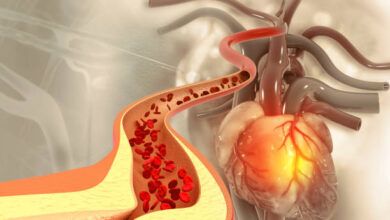
Junk food
Junk food, with its tantalizing flavors and convenient allure, has become an integral part of modern diets across the globe. Defined as highly processed, energy-dense, and nutrient-poor foods, these delectable treats often lack essential vitamins, minerals, and other vital nutrients. While indulging in junk food occasionally may not have significant repercussions, frequent consumption can lead to a host of detrimental health effects.
In this article, we will explore the side effects of junk food, shedding light on the impact it has on physical health, mental well-being, and the potential long-term consequences of an unhealthy diet.
The Allure of Junk Food: A Taste Bud Temptation
Junk food’s popularity can be attributed to several factors that appeal to our taste buds, emotions, and lifestyle:
- Palatability: Junk food is often designed to be irresistibly delicious, combining sugar, salt, and fat in ways that trigger pleasurable responses in the brain. This creates a rewarding eating experience, leading to a desire for more.
- Convenience: The fast-paced nature of modern life often leaves little time for preparing home-cooked meals. Junk food offers quick and readily available options that satisfy hunger with minimal effort.
- Marketing and Advertising: The pervasive marketing strategies employed by the junk food industry play a significant role in shaping consumer preferences. Eye-catching advertisements, celebrity endorsements, and appealing packaging influence our choices.
- Affordability: Junk food is frequently cheaper than healthier alternatives, making it an attractive option for those on a tight budget.
While these factors contribute to the popularity of junk food, it is essential to recognize the potential consequences of consuming these treats regularly.

Physical Health Side Effects of Junk Food
- Obesity and Weight Gain: Junk food is typically calorie-dense and lacking in nutrients, leading to excessive calorie intake without meeting the body’s nutritional needs. This imbalance can contribute to weight gain and obesity, which increases the risk of various health issues, including heart disease, type 2 diabetes, and certain cancers.
- Cardiovascular Disease: The high levels of trans fats, saturated fats, and sodium found in many junk food items can raise cholesterol levels and blood pressure, increasing the risk of heart disease, stroke, and hypertension.
- Type 2 Diabetes: Regular consumption of sugary beverages and highly processed foods with added sugars can lead to insulin resistance, a key factor in the development of type 2 diabetes.
- Digestive Issues: Junk food’s low fiber content can lead to digestive problems, such as constipation and irregular bowel movements.
- Dental Problems: Sugary and acidic junk food can erode tooth enamel and contribute to cavities and dental decay.
- Nutrient Deficiencies: Junk food lacks essential vitamins, minerals, and other nutrients necessary for optimal health. Prolonged consumption can lead to nutrient deficiencies and related health issues.
Mental Health Side Effects of Junk Food
- Mood Swings: The rapid spikes and crashes in blood sugar levels caused by consuming high-sugar junk food can lead to mood swings, irritability, and fatigue.
- Depression and Anxiety: Emerging research suggests a link between a diet high in junk food and an increased risk of depression and anxiety. The gut-brain connection plays a role in these associations.
- Addictive Potential: The combination of sugar, fat, and salt in junk food can trigger dopamine release in the brain, similar to the effects of addictive substances. This can create a cycle of craving and consumption, leading to potential addiction-like behaviors.

Long-Term Consequences of Unhealthy Diets
The impact of consuming junk food over an extended period can be far-reaching, affecting not only individual health but also public health and healthcare systems:
- Chronic Diseases: The rising prevalence of chronic diseases, such as obesity, diabetes, and heart disease, can be partially attributed to poor dietary habits, including excessive junk food consumption. These conditions place a significant burden on healthcare systems worldwide.
- Economic Costs: Treating diet-related health conditions and their associated complications places a strain on healthcare budgets, leading to increased healthcare costs for individuals, governments, and insurance providers.
- Reduced Life Expectancy: Unhealthy dietary habits, including regular consumption of junk food, can contribute to a decrease in life expectancy and lower quality of life.
- Childhood Health: Early exposure to junk food and unhealthy diets can have lasting effects on children’s health, leading to an increased risk of chronic diseases in adulthood.
Breaking Free from the Junk Food Trap: Empowering Healthy Choices
While the allure of junk food can be challenging to resist. Making conscious and informed choices is essential for maintaining good health and well-being. Here are some strategies to help break free from the junk food trap:
Balanced Diet:
Focus on consuming a balanced diet rich in fruits, vegetables, whole grains, lean proteins, and healthy fats. These nutrient-dense foods provide essential vitamins and minerals, promoting overall health.
Mindful Eating:
Practice mindful eating by paying attention to hunger and fullness cues, savoring flavors, and enjoying meals without distractions. This can help prevent overeating and foster a healthier relationship with food.
Meal Planning:
Plan and prepare meals ahead of time to avoid reaching for convenient but unhealthy options when hunger strikes.
Reading Labels:
When purchasing packaged foods, read the nutritional labels and ingredient lists. Choose products with lower amounts of added sugars, unhealthy fats, and sodium.
Limiting Treats:
Reserve junk food as an occasional treat rather than a regular part of your diet.
Cooking at Home:
Embrace cooking at home as a way to control ingredients and ensure healthier meals.
Educating Children:
Teach children about the importance of healthy eating from a young age, setting a positive example for their dietary choices.
Conclusion
Junk food’s tantalizing appeal and convenience have made it an integral part of modern diets. However, the side effects of regular junk food consumption can be detrimental to both physical and mental health. Leading to a range of chronic diseases and long-term consequences. Recognizing the impact of unhealthy diets on personal well-being. And society’s health is crucial in addressing the global rise in diet-related health issues.
By making informed and conscious choices, embracing a balanced diet, and prioritizing physical and mental well-being. Individuals can break free from the junk food trap and foster a culture of health and wellness. Empowering ourselves and future generations with the knowledge. And tools to make healthier choices can pave the way for a brighter, healthier, and more vibrant future.





